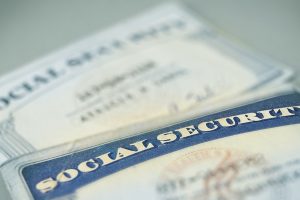Bankruptcy And Social Security Overpayments

The Government Accountability Office (GAO) reported last year that in a two-year period, the Social Security Administration (SSA) made $1.3 billion in overpayments. Some of that $1.3 billion can be attributed to fraud, but more frequently what happens is that innocent people receive the overpayments due to SSA mistakes and are then ordered to pay the money back. Some even continue receiving payments after notifying the SSA that they no longer qualify for the benefits. These Americans are already dealing with disability, advanced age, and other serious circumstances; now, without warning, they owe the government, in some cases, thousands of dollars.
If the Social Security Administration (SSA) pays you more retirement or disability benefits than you were entitled to receive, they may try to collect the overpayment. However, filing for bankruptcy in Illinois can eliminate any obligation to repay a Social Security overpayment. Like most debts, Social Security overpayments (that are not the result of fraud on your part) are typically dischargeable in bankruptcy. However, if you are considering bankruptcy in the Chicago area, it’s imperative to speak first with an experienced Chicago bankruptcy lawyer.
Many people are not aware that they are being overpaid when the SSA sends them too much money. Most promptly notify the SSA when they return to work or experience any other change that may impact their Social Security benefits. However, if the payments continue anyway, they may incorrectly believe that they still qualify. Most people are flabbergasted when they receive a letter from the SSA demanding what is often a substantial repayment.
Taxes, criminal fines, and most student loans cannot be eliminated by bankruptcy; they are called “nondischargeable” debts. However, in a bankruptcy in Illinois, Social Security overpayments are treated as general unsecured debts similar to credit card debts and medical bills. If you cannot pay back your Social Security overpayment, filing for a Chapter 7 or a Chapter 13 bankruptcy will allow you to discharge your debt to the SSA. However, bankruptcy may not be in your best interests for a number of other reasons. If you are in or near the Chicago area and your debts are spiraling out of control, speak right away with an experienced Chicago bankruptcy lawyer who can explain bankruptcy and other options for dealing with overwhelming debt.


